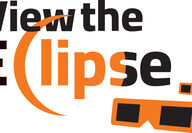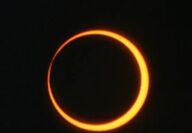Sorted by date Results 1 - 4 of 4

Summerland-area residents won't be in total darkness, Monday, during the solar eclipse. Mark Urwiller, director of Honey Creek Observatory, in O'Neill, said the eclipse will have 70% coverage in this area. Areas in southeast Nebraska, as well as the Omaha metro area, may have up to 85% coverage. According to National Weather Service officials, partly-cloudy skies may play spoiler for the April 8 celestial event. The region has a 50 to 60% chance of cloud cover. While a total eclipse will cut a...

Amateur astronomy enthusiasts will want to turn their gaze toward the evening skies this month as seven celestial events take place. On Oct. 5 and 6, the Camelopardalid meteor shower will be visible above the horizon, near the constellation Draco. Approximately five to six meteors will be visible each hour, after 11 pm., with the greatest shower visible shortly before dawn. From Oct. 6 to 9, the Draconid meteor shower will produce up to 10 meteors an hour, with prime viewing time between...

“I need a sign to let me know you’re here. All of these lines are being crossed over the atmosphere...” That song lyric, from “Calling All Angels,” by Train, kept replaying in my mind Monday evening, when we gathered with approximately 30 individuals to view the great conjunction, at Honey Creek Observatory, north of O’Neill. Low, rolling clouds blanketed the southwestern sky. Occasionally, a sliver of the waxing gibbous moon would surface, offering a quick glimpse at its corona. The Christm...

On Dec. 21 - the shortest day of the year - two planets will align in the evening sky, giving stargazers an opportunity to view a Christmas kiss. The last time the Jupiter and Saturn passed this close to each other was on July 16, 1623. Prior to that, they crossed paths in 1226. The proximity of planets may make the two appear as one unit during the winter solstice. The Christmas kiss, dubbed by Dr. Brad Tucker of Australia's National University, will be visible approximately one hour following...